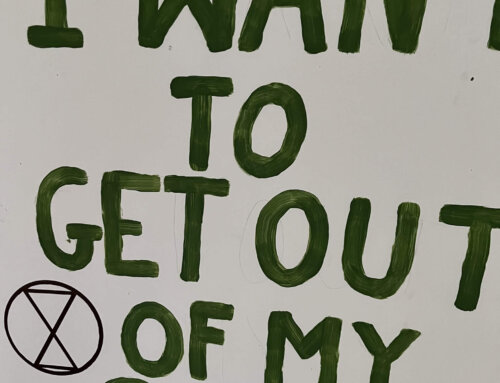The Election Roadshow for Climate, an initiative of Extinction Rebellion (XR) supported by Aotearoa Climate Emergency (ACE), has been visiting Carterton and Marlborough today, in its attempt to put climate and ecological change at the forefront of this election.
The Roadshow, which started concurrently from Bluff and Cape Reinga on Monday, is promoting three election issues: the declaration of a national climate emergency; a Citizens’ Assembly on climate next year; and a green post-COVID-19 economic recovery plan.
In Greytown, the North Island contingent of the roadshow interviewed James Shaw, co-leader of the Greens party. Mr Shaw started out by giving his thanks to the Extinction Rebellion for keeping climate change on the political agenda.
“One of my concerns is that people are taking their eye off climate change because we’ve got this pandemic to deal with, and actually, we need to deal with both at the same time. Climate change isn’t going away just because there’s a pandemic on.”
Caril Cowan of Extinction Rebellion asked Mr Shaw how he would address the concerns of another roadshow interviewee, Ruby Judson, 14, of Devonport, who believes that youth are facing a mental health crisis due to an increasingly bleak future under climate change and ecological decline.
“I completely agree with her,” Mr Shaw said. “It’s clear that the effects of climate change are being felt around the world and here in Aotearoa as well. And these will only get worse if we don’t keep our foot on the accelerator of climate action.”
Mr Shaw went on to explain that if the Greens were in parliament next term they would push to rapidly decarbonise transport, agriculture and industrial heat. Mr Shaw also expressed his support for a Citizens’ Assembly.
Caril Cowan also interviewed Dr Anni Lincoln who has been a GP in the Wairarapa for 39 years. Dr Lincoln is gravely concerned for the future that her grandchildren are inheriting.
“It’s up to us, locally, nationally, internationally to realise what is happening to our planet. It’s up to us, on the ground level, to facilitate change, because right now it’s not happening. The powers that be know we are facing a climate crisis and mass extinction, and yet nothing is really being done and in fact it’s getting worse.”
Dr Lincoln pointed out that climate change is a far graver threat to our health than Covid-19 and talked about the need to rally that same sense of urgency in the response to climate change. She also talked about the need for reform on the democratic process.
“It is not a democratic process at the moment. We vote people in democratically but there are so many outside forces that affect policy change, particularly when dealing with large governments overseas and big businesses. I really believe that with a Citizens’ Assembly any policy needs to go through a national and environmental framework to ensure that it’s good for the country and good for the environment – and that we are planning not just for the next five years but the next hundred.”
In Martinborough Caril Cowan spoke with Ray Lilley, former Editor in Chief with RNZ.
“The lack of rain will see sheep farmers, crop farmers and wine growers struggling,” said Ray. “One of our biggest rivers, the Rimahunga, you can’t swim your dog in it in the summer because of the level of toxins in the river. If your dog drinks that water it will die. If that’s not part of the ecological crisis, I don’t know what is.”
In the South Island, Phil Saxby of Aotearoa Climate Emergency (ACE) interviewed Jenny from Windsong Orchard, Renwick. Jenny is an orchardist with concerns for the future of her business.
“Being on the east coast, there’s a constant lack of moisture in the summer. It’s always been that way but it’s getting worse. We used to have over a hundred frosts each year and now we’re down to under thirty. We produce stone fruit so we actually need this winter chilling. It’s definitely a worry when it comes to the choice of fruit we can grow.”
The roadshow finishes tomorrow in Wellington.



